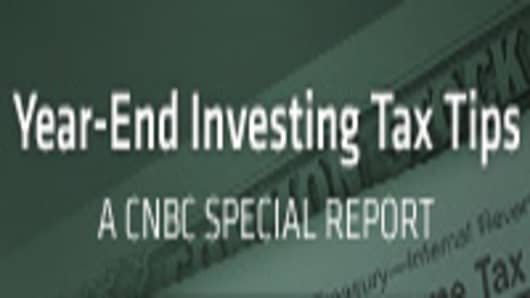If tax-loss harvesting is on your year-end, to-do list, you’ll want to avoid transactions that could nullify those stock losses.
Investors who sell an individual stock, mutual fundor exchange traded fund for a loss cannot buy back the same fund or a “substantially identical” one within 30 days. If you do, the original trade is deemed a “wash sale” and you can no longer book the loss for tax purposes.
The rule also applies to any replacement investments purchased 30 days prior to your tax-loss sale, making the wash sale period a full 61 days.
Tax-loss harvesting enables you to sell investments worth less than their original purchase price and use up to $3,000 in losses to cancel out any capital gains incurred in the same calendar year. Gains could result from selling an investment for a profit or from annual capital gains distributions that most mutual funds pay out in December.
For fund investors seeking to stay in the stock market by buying a fund similar to the one they’re selling, the wrinkle is figuring out what constitutes similar without being the same.
“The IRS has not clearly explained what it considers a substantially identical investment,’’ says Maria Bruno, an analyst in the Investment Strategy Group of mutual fund and ETF provider Vanguard.
Despite the confusion, there are some pretty clear cut alternatives:
Replacing an actively managed fund with an ETF or index fund (and vice versa) should not create any issues.
Replacing an ETF or index fund with another that tracks a different benchmark should also be an allowable transaction.
Some tax professionals say switching from one actively managed fund to another managed by a different company is enough to qualify an investment as different.
“Some go as far as saying two S&P 500 index funds are not identical,’’ says Kaye Thomas, an author who maintains the tax website www.fairmark.com.
Thomas says a good rule of thumb is to compare the performance charts of the fund you’re selling with the one you’re considering buying. If they line up perfectly, you probably need to look for a different replacement.
When searching for a suitable substitute, look for funds that provide exposure to the same asset class or investment style of the fund you’re selling.
“Ask yourself: Is it meeting my investment objectives and would I be okay holding it [for a long period],” says Vanguard’s Bruno.
This is where the plethora of ETFs comes in handy. ETFs target specific asset class and style box criteria at minimal cost. Because they trade like stocks, ETFs usually charge trading commissions. While these costs could cut into the benefits of using ETFs as investment replacements, some popular ETFs are now being sold commission free by select brokers.
Screening for ETFs with low expenses, no commissions and adequate assets to ensure liquidity, here are several to consider as replacements to mutual funds sold in popular investment categories:
- Large Cap Growth:Vanguard Mega Cap 300 Gr Index ETF
- Large Cap Blend:Schwab U.S. Large Cap ETF
- Large Cap Value:iShares Russell 1000 Value
- Mid-Cap Blend:Vanguard Mid Cap ETF
- Small Cap Blend:iShares S&P SmallCap 600 Index
- Foreign Large Blend: Schwab International Equity ETF
- World Stock:iShares MSCI ACWI Index
iShares offers the widest selection of ETF replacements across most asset classes. Within large-, mid- and small-cap U.S. stocks, you can choose from ETFs that track benchmarks run by Morningstar, Russell, and Standard and Poor’s.
Vanguard, meanwhile, offers ten ETFs focused on large caps, four on mid-caps and three on small caps. Vanguard ETF trades are commission free for investors with a Vanguard brokerage account.
Charles Schwab, a new entrant to the ETF market, waives the commission for account holders who purchase Schwab ETFs online. TD Ameritrade offers commission-free ETF trades from multiple ETF providers while eTrade offers free or discounted ETF trades to new account holders.



